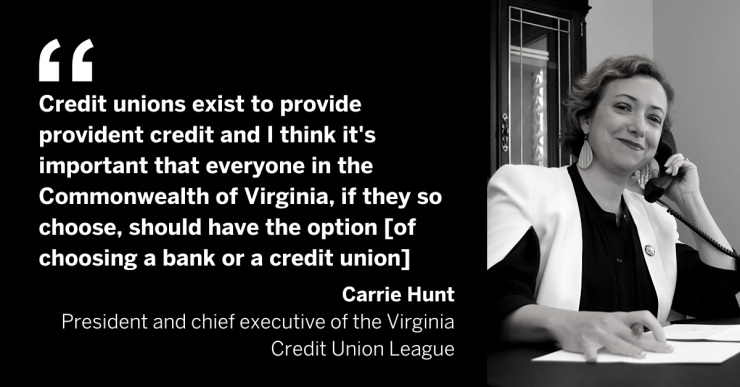State regulators have shot down a bid by Virginia Credit Union in North Chesterfield to expand its membership to include a statewide medical society after a preliminary approval three years ago sparked a backlash from local banking advocates.
The Virginia State Corporation Commission — which oversees utilities, insurance, state-chartered financial institutions and more — denied the $5 billion-asset credit union's request to add approximately 10,000 members of the Medical Society of Virginia to its field of membership on the grounds of not upholding statutes of Virginia law.
The agency stated that "VACU has not met its burden to show that 'the formation of a separate credit union by [MSV] is not practicable, or is not consistent with reasonable safety-and-soundness standards,' " according to the
According to
"We are disappointed by last week's decision. … [As] we believe that extending membership eligibility as an option for members of the Society was reasonable," the credit union said in a publicly released statement last week.
The denial concluded a roughly three-year effort by the Virginia Bankers Association and several community banks in the state that have been

Bruce Whitehurst, president and chief executive of the Virginia Bankers Association, said that past approvals of similar efforts from credit unions included groups with roughly 3,000 members, or about a third of the organization VACU sought for inclusion.
"We believe that it is true that there's never been a state [chartered] credit union to ask for a 10,000-member group to be added to a field of membership … that's more than three times the statutory limit," Whitehurst said. "There have been a handful of groups approved that exceeded 3,000, but under very different circumstances than a statewide trade association for medical professionals."
Whitehurst stressed that the impact of the Bureau of Financial Institutions' 2019 decision would see smaller community banks such as those that petitioned alongside the Virginia Bankers Association disproportionately affected by a loss of taxable revenue.
"Every time the credit union would move someone from a banking relationship to a credit union, it would be to move a relationship that brings taxable revenue to a taxpaying bank over to a credit union that is tax exempt at the state and federal levels … so the harm would be not only to the bank, but also to the state and to the localities that receive taxes from the banks," Whitehurst said.
Other credit unions seeking to
Other ongoing legislative debates between the two include

"If you have a finite membership, and those members don't want to borrow money, you don't have a source of income to provide stability and appropriate capital to the institution. … If the credit union isn't growing, then the regulator is going to have an issue with that," said Carrie Hunt, president and CEO of the Virginia Credit Union League.
Hunt stressed that credit union operations are becoming more complex as a result of regulatory burdens, cybersecurity demands and other challenges, and that onboarding new consumers is valuable for offsetting the rising cost of business.
"Credit unions exist to provide provident credit and I think it's important that everyone in the commonwealth of Virginia, if they so choose, should have the option," of choosing a bank or a credit union, Hunt said.





